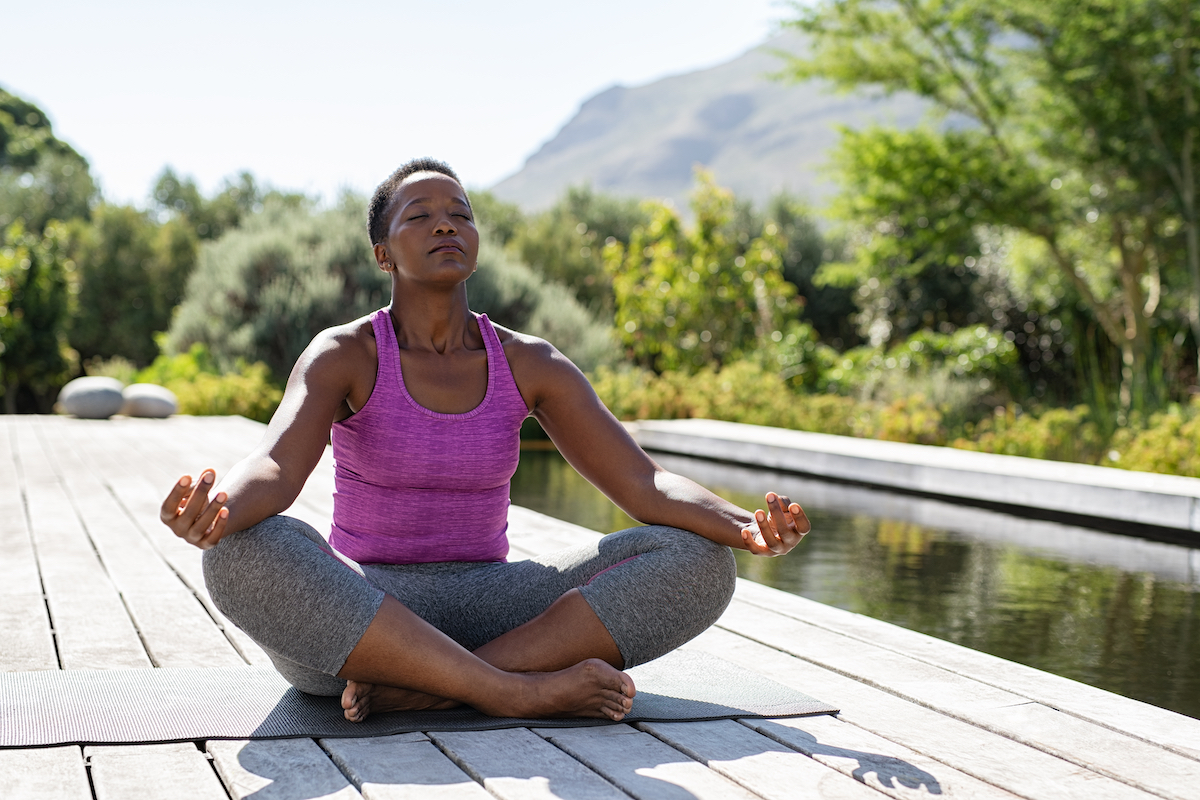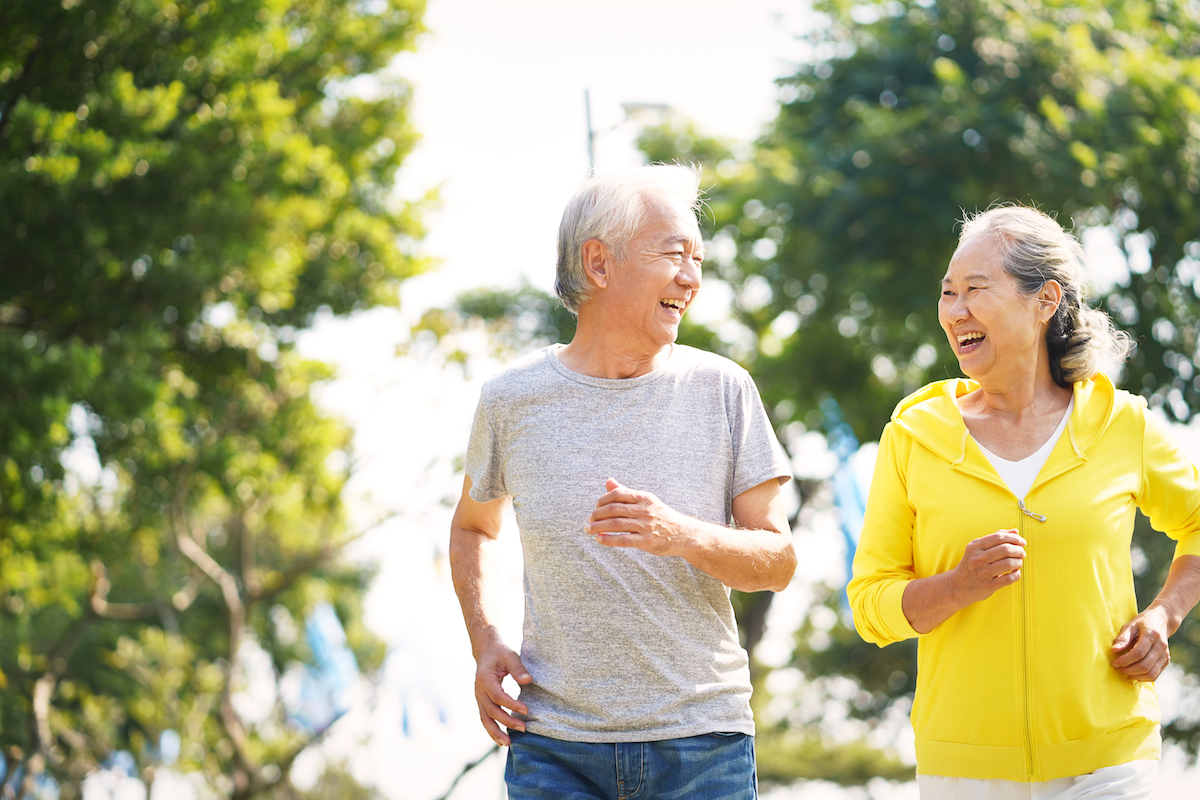
Suddenly we are reminded of the incredible fragility of our planet, our lives, our economy, our jobs, our savings. Perhaps we forgot that everything is at the mercy of things way beyond our control and can be taken away at a moment’s notice. While this might sound pessimistic and scary, let me explain how this reminder could be our greatest doorway into lasting happiness.
Before we dive in, I want to note that this perspective is not about sticking our head in the sand and saying that everything is hunky-dory. A member of my immediate family became very ill with COVID-19, and I know personally how serious and terrifying this pandemic is. This is about acknowledging what is happening in our world and using our energy to be helpful towards others and ourselves during this time, rather than wishing it wasn’t happening.
Acknowledging Our Lack of Control
Certainly, everything is unknown right now, and as humans, most of us hate the unknown. It’s biological. The unknown could provide a threat to our security and we are programmed to avoid it. We love to feel like we have things under control and that we have created predictability out of this completely unpredictable universe. So much of what we focus our energy on is designed to create the illusion of control, that we are on top of things, that we know what’s going to happen next.
But here’s the truth: everything is and always has been unknown and out of our control. Sure, we can have an effect on many things with our individual choices, but on a broader level, nothing is really under our control. Sometimes it takes a disaster like a flood, cancer, a war, or a pandemic to shake us out of our trance and wake us up. Most of us (including me) initially react to disasters by frantically trying to regain control.
Letting Go
What if we could intentionally cultivate this feeling of not wanting things to be different, of accepting reality as it is and letting go of trying to fix or change things? Would it be possible to be happier, more content and less stressed? The answer is absolutely “Yes!” So how do we feel peace and a sense of being OK in the middle of a crisis? Let me share with you what has worked for me and has been taught by people much wiser than I am.

Sitting with Our Thoughts
You can call this process whatever you want — meditation, contemplative prayer, introspection or developing self-awareness and insight. Scientists have proven that meditation reduces stress hormones that harm your immune system, and that meditation is one of the most important things that we can do to stay immunologically well.
Sit down somewhere quiet with no distractions and simply observe your breath. Take three really deep breaths as you start to literally slow down your nervous system, then simply count or observe your breath for a few minutes. Notice how your nervous system starts to feel calmer. Thoughts will start to appear in your mind; this is the mind doing what a mind does and is totally normal. Imagine your thoughts are clouds passing through the sky. Observe them as if you are a third party and focus on your breath.
From this more relaxed state, can you identify what you are feeling right now? Is anger, fear, joy or sadness here? Notice where you feel it in your body. Perhaps your chest is tight, you feel pressure in your throat, or tears forming behind your eyes. Perhaps you feel light and joyful and have a tingling feeling in your belly. Whatever it is, can you allow it to be there? Perhaps put your hand on the spot where you feel it the most, and simply allow it to be as it is. It helps me to name it. Fear. Anger. Scared. Furious. Terrified. Sad. The key is feeling the emotion in your body, not thinking about it in your head. Can you hold your emotions lightly, and not be quite so attached to them being the “right” feeling? Can you step back a little from these stories in your mind and be the observer? It’s important to discover through practicing meditation (and it takes lots of practice) that you are not your thoughts. You can learn to be aware of them at a distance, and from there establish a healthier relationship with your anxiety, fear, and need for control.

Finding Joy and Pleasure in Life
Daily exercise, having fun, good sleep, a healthy diet, and human connection are super important to maximize our immune and mental health.
Use this time in social isolation to add some play to your day, focus on eating better, getting in some movement every day and making genuine connections. Here is a small challenge that might help push you out of your comfort zone to a new way of being:
1. Connect with one old friend that you haven’t talked to in a while
2. Notice one “numbing” activity that you drift to when you are stressed that inevitably isn’t helpful, such as drinking too much, binge-watching TV, watching the news, scrolling through Instagram, etc. Commit to giving it up or minimizing it for 30 days
3. As long as we are allowed to, commit to spending at least 20 minutes a day outside doing some kind of physical movement or exercise.
4. Find something that is just fun, with no particular goal, and commit to doing it for at least 20 minutes a day for 30 days. Maybe it is dancing, singing, playing board games, knitting, painting or gardening.
5. Have sex (whether with yourself or your partner), which is proven to reduce stress and improve your immune response by releasing oxytocin.
Being Grateful
Lastly, and perhaps most importantly, find something, anything, to be grateful for. I promise you there’s something. Right now, I can honestly tell you that I am grateful for COVID-19. This invisible virus reminded me to wake up, that life is precious, and that my happiness in my own hands. Thank you, COVID-19

